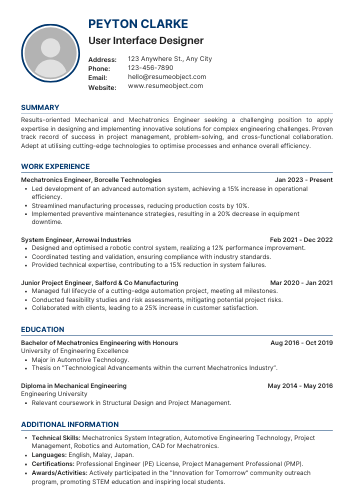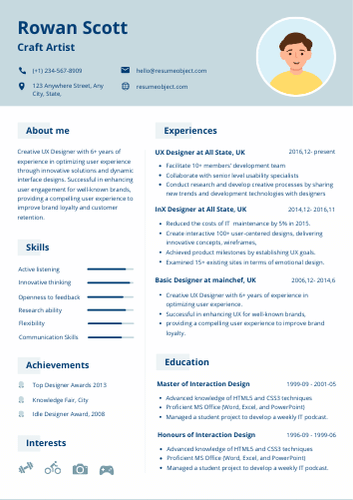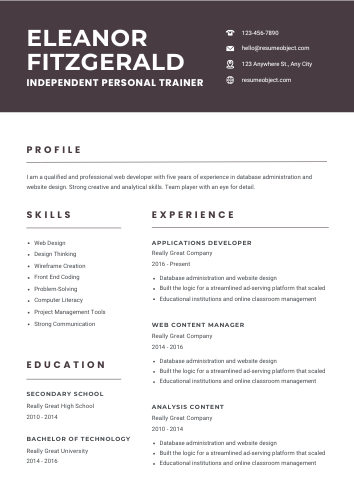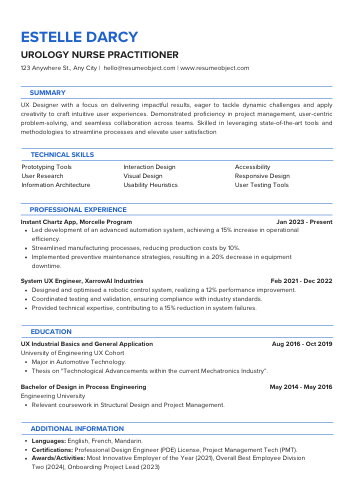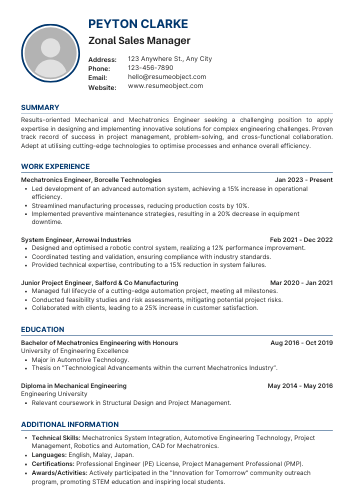28 Vet Tech Skills for Resume – How to List for Vet Tech Resume
Vet Tech Skills on Resume
Showcase Vet Tech Skills for Resume that make hiring managers stop and call you. Highlight clinical proficiency, patient handling, lab techniques, client communication, and software fluency with concise bullet-ready phrases. Prioritize certifications, measurable achievements, and keywords from job postings to pass ATS. This strategic approach turns technical ability into compelling proof of readiness and reliability for veterinary care teams daily.
Why Vet Tech Skills Matter for a Resume
Showcasing relevant vet tech skills on your resume proves practical competence, clinical knowledge, and adaptability, helping employers assess your readiness for patient care, diagnostics, surgical support, and client communication while distinguishing you from other applicants in competitive veterinary settings today.
Vet Tech Skills for Resume are crucial because they prove clinical competence, ensure patient safety, and showcase teamwork under pressure. Clear, job-specific skills make recruiters confident you can handle diagnostics, anesthesia, nursing care, and client education.
- Accurate anesthesia monitoring and emergency response skills, reducing perioperative risk.
- Laboratory diagnostics, sample collection, and interpretation to support fast clinical decisions.
- Patient nursing: wound care, medication administration, IV catheter placement, and pain management.
- Client communication and education, delivering clear post-op instructions and behavioral guidance.
- Radiology and imaging proficiency, ensuring safe positioning and accurate diagnostic images.
- Inventory, sanitation protocols, and teamwork for efficient clinic operations and compliance.
Highlighting these Vet Tech Skills for Resume with quantifiable achievements—successful anesthesia cases, reduced infection rates, or improved client satisfaction scores—turns vague claims into measurable value. Employers hire candidates who demonstrate technical proficiency, compassionate care, and operational reliability; a tailored skills section makes that evidence impossible to ignore today.
Boost your resume by highlighting transferable abilities—learn which to prioritize and how to list them easily today in our comprehensive guide: Functional Skills for Resume.
Top 20 Skills for a Vet Tech Resume
When crafting a resume for a Vet Tech position, highlighting the right skills is crucial to stand out. Here’s a list of essential Vet Tech skills for your resume:
- Animal Handling
- Patient Care
- Medical Terminology
- Veterinary Procedures
- Client Communication
- Record Keeping
- Laboratory Skills
- Anesthesia Monitoring
- Surgical Assistance
- Radiology
- Pharmacy Knowledge
- Emergency Care
- Diagnostic Imaging
- Infection Control
- Nutrition Counseling
- Behavior Assessment
- Equipment Maintenance
- Team Collaboration
- Time Management
- Customer Service
Top Hard Skills for a Vet Tech Resume
The following highlights the top hard skills hiring managers seek on vet tech resumes, showcasing essential clinical, technical, and diagnostic competencies that demonstrate proficiency, reliability, and readiness to deliver high-quality animal care in veterinary settings.
-
Animal Anatomy and Physiology: Understanding the structure and function of animal bodies is crucial for providing effective care.
-
Veterinary Medical Terminology: Familiarity with medical terms helps in accurate communication and documentation.
-
Patient Assessment: Skills in evaluating animal health through physical exams and diagnostic tests are essential for treatment planning.
-
Surgical Assistance: Proficiency in assisting during surgical procedures ensures safety and efficiency in the operating room.
-
Anesthesia Monitoring: Knowledge of anesthesia protocols and monitoring techniques is vital for patient safety during procedures.
-
Laboratory Skills: Ability to perform and interpret laboratory tests like blood work and urinalysis aids in accurate diagnosis.
-
Radiology: Competence in taking and interpreting X-rays is important for diagnosing various conditions.
-
Pharmacology: Understanding medications and their effects enables proper administration and client education.
-
Client Communication: Strong communication skills help in educating pet owners about treatments and care.
-
Emergency Care: Skills in providing immediate care in critical situations can save lives and stabilize patients.
-
Infection Control: Knowledge of hygiene practices and protocols prevents the spread of diseases in the clinic.
-
Animal Handling: Proficient handling techniques ensure the safety of both the animal and the technician during examinations.
-
Record Keeping: Accurate documentation of patient records is essential for ongoing care and legal compliance.
-
Nutritional Counseling: Advising pet owners on proper nutrition supports overall animal health and well-being.
-
Behavioral Assessment: Skills in assessing animal behavior help in managing stress and improving the handling of patients.
Other Skills for Resumes
Top Soft Skills for a Vet Tech Resume
Following are the top soft skills for a vet tech resume, highlighting essential interpersonal, communication, and problem-solving abilities employers value—useful for tailoring resume, demonstrating professionalism, and improving job prospects, giving competitive edge in veterinary medicine.
-
Communication Skills: Essential for effectively interacting with pet owners and colleagues, ensuring clear understanding and compassionate care.
-
Empathy: Vital for connecting with clients and their pets, demonstrating compassion and understanding during stressful situations.
-
Teamwork: Important for collaborating with veterinarians and other staff, fostering a supportive work environment and efficient patient care.
-
Problem-Solving: Necessary for quickly addressing unexpected challenges and making informed decisions in high-pressure situations.
-
Time Management: Crucial for prioritizing tasks and managing a busy workload, ensuring that all patients receive timely care.
-
Attention to Detail: Key for accurately assessing animal health, following protocols, and documenting medical records without errors.
-
Adaptability: Important for adjusting to new procedures, technologies, and varying patient needs in a dynamic veterinary environment.
-
Customer Service Skills: Essential for providing a positive experience for pet owners, addressing their concerns, and building lasting relationships.
-
Stress Management: Necessary for maintaining composure in high-stress situations, ensuring effective performance and patient care.
-
Critical Thinking: Important for evaluating situations, analyzing information, and making sound judgments to enhance animal welfare.
How to List Vet Tech Skills on a Resume
This concise guide shows employers what matters most, offering examples and formatting tips on vet-specific competencies so you can showcase Vet Tech Skills for Resume impact and learn How to list skills that stand out.
To effectively showcase your Vet Tech skills for resume, begin by identifying the key competencies that align with the job description. Highlight both technical and soft skills that demonstrate your ability to perform in a veterinary environment. Use action verbs and quantify your achievements where possible to create a strong impact.
Consider listing your Vet Tech skills for resume in the following format:
- Animal handling and restraint
- Patient assessment and monitoring
- Surgical assistance
- Diagnostic imaging (X-rays, ultrasounds)
- Laboratory procedures (blood work, urinalysis)
- Client communication and education
- Record keeping and data management
- Emergency care and first aid
By clearly presenting your Vet Tech skills for resume, you enhance your chances of standing out to potential employers and securing an interview. Tailor your skills to match the specific requirements of the position for the best results.
Resume Example for Vet Tech with Skills Highlighted
Discover a detailed example showcasing essential skills and qualifications tailored for veterinary technicians. This sample resume effectively highlights key competencies, providing a valuable reference for crafting a standout vet tech job application that captures employer attention.
John Doe
123 Animal Lane
Pet City, ST 12345
(123) 456-7890
[email protected]
Objective
Dedicated and compassionate Veterinary Technician with over 5 years of experience in animal care, seeking to leverage my knowledge and skills in a challenging Vet Tech role. Committed to providing exceptional support to veterinarians and ensuring the well-being of animals.
Education
Associate Degree in Veterinary Technology
Pet Care Community College, Pet City, ST
Graduated: May 2018
Licenses & Certifications
- Licensed Veterinary Technician (LVT)
- Certified Veterinary Technician (CVT)
- CPR and First Aid for Animals
Professional Experience
Veterinary Technician
Happy Paws Animal Clinic, Pet City, ST
June 2018 - Present
- Provided exceptional care to over 50 animals daily, ensuring their health and comfort.
- Assisted veterinarians in surgeries and medical procedures, demonstrating strong Vet Tech skills for resume such as anesthesia monitoring and surgical prep.
- Conducted diagnostic tests, including blood work and urinalysis, while maintaining accurate records and ensuring compliance with protocols.
- Educated pet owners on post-operative care and preventive health measures, enhancing client relationships and promoting animal welfare.
Veterinary Assistant
Furry Friends Animal Hospital, Pet City, ST
January 2016 - May 2018
- Supported veterinary staff in daily operations, including patient assessments and administering medications.
- Developed proficiency in Vet Tech skills for resume such as patient handling, inventory management, and client communication.
- Assisted in the training of new staff on clinic procedures and animal handling techniques.
Skills
- Animal Care and Handling
- Surgical Assistance
- Anesthesia Monitoring
- Diagnostic Testing
- Client Education and Communication
- Record Keeping and Administration
- Emergency Response
References
Available upon request.
Action Verbs to Pair with Vet Tech Skills
Action Verbs to Pair with Vet Tech Skills on a Resume distills verbs to showcase clinical care, lab proficiency and teamwork; guidance on selecting Action Verbs to Pair with skills for Vet Tech hiring managers
- Administered
- Assisted
- Diagnosed
- Educated
- Monitored
- Operated
- Prepared
- Performed
- Researched
- Supported
- Trained
- Treated
- Validated
- Coordinated
- Documented
Common Mistakes to Avoid When Listing Vet Tech Skills
Mistakes to avoid while adding Vet Tech Skills on a Resume Use guide to learn mistakes to avoid while adding skills, avoid vague phrasing, and polish Vet Tech Skills for Resume with concise, measurable achievements
When crafting your resume, highlighting your Vet Tech skills for resume is crucial, but there are common pitfalls to avoid. These mistakes can undermine your qualifications and lessen your chances of landing that dream job. By steering clear of these errors, you can present a polished and professional image that showcases your expertise.
- Neglecting Relevant Skills: Failing to include specific Vet Tech skills that are relevant to the job description can make your resume less appealing to potential employers.
- Using Jargon: Overloading your resume with technical jargon may confuse hiring managers. Keep it clear and accessible to ensure your skills are understood.
- Lack of Evidence: Simply listing skills without providing context or examples can weaken your claims. Always back up your skills with tangible experiences or achievements.
- Ignoring Soft Skills: Vet Tech roles require strong interpersonal skills. Omitting these can give the impression that you lack essential qualities like empathy and communication.
- Not Tailoring Your Resume: Sending a generic resume can be detrimental. Customize your Vet Tech skills for resume to align with each job application to stand out.
By avoiding these mistakes, you’ll enhance your resume and increase your chances of impressing potential employers.
Tips for Listing Vet Tech Skills on Resume
When crafting a resume, highlighting your Vet Tech skills for resume is crucial to stand out in a competitive job market. Employers look for specific competencies that demonstrate your ability to provide excellent care to animals and support veterinarians effectively. To ensure your resume captures attention, focus on relevant skills that showcase your expertise and dedication to the field.
Here are the best tips for adding Vet Tech skills for resume:
- Proficiency in animal handling and restraint techniques.
- Knowledge of veterinary medical terminology and procedures.
- Experience in administering medications and vaccinations.
- Ability to perform diagnostic tests and interpret results.
- Strong communication skills for interacting with pet owners and team members.
By strategically incorporating these Vet Tech skills for resume, you enhance your chances of landing your desired position in veterinary care, showcasing your qualifications and passion for the profession.
Do
Do: Lead with certifications & credentials - list your RVT/LVT/CVT, state licenses, and relevant continuing education so employers immediately see your verified qualifications.
Do: Tailor skills to the job posting - match keywords (e.g., anesthesia monitoring, venipuncture, dental prophylaxis) from the listing to pass ATS scans and show fit.
Do: Quantify clinical achievements - add measurable results (e.g., “assisted in 200+ surgeries/year,” “reduced post-op complications by 15%”) to demonstrate impact.
Do: Balance technical and soft skills - combine hands-on abilities (radiography, IV catheter placement) with communication, client education, and teamwork to show full practice readiness.
Do: Optimize layout for clarity and ATS - use a clear skills section, short bullet-style phrases, and standard headings so both humans and applicant tracking systems quickly find your core competencies.
Don't
Don't: Overstuff your resume with generic skills. Employers skim—replace vague terms like "animal care" with specific, verifiable skills (IV catheter placement, anesthesia monitoring, dental scaling).
Don't: Claim certifications without proof. Only list completed certifications and include issuing body and date; falsifying or inflating credentials destroys credibility.
Don't: Omit measurable results. Show impact—“reduced post-op complications by 15%” or “managed 30+ patient records weekly”—not just duties.
Don't: Ignore software and equipment specifics. Name practice management systems (e.g., Avimark, ImproMed) and diagnostic equipment you use to match employer needs.
Don't: Use one resume for every job. Tailor skills to the posting—prioritize surgery skills for specialty clinics, preventative care skills for general practices.
FAQs about Vet Tech Resume Skills
How many skills should I include on a Vet Tech resume?
Include 8-12 relevant Vet Tech Skills for Resume to showcase your expertise without overwhelming the reader. Focus on both technical abilities and soft skills to highlight your well-rounded qualifications effectively.
How do I know which skills are most relevant for a Vet Tech job role?
To identify the most relevant Vet Tech Skills for Resume, research job descriptions, highlight common technical and soft skills like animal care, lab procedures, and communication, and tailor your resume to match employer requirements for the specific Vet Tech role.
How can I prove the Vet Tech skills I list on my resume?
To prove Vet Tech skills for resume, provide certifications, hands-on experience, and specific examples of tasks performed. Include references or letters of recommendation from supervisors to validate your expertise and demonstrate your practical knowledge effectively.
Should I update my Vet Tech skills section for each job application?
Yes, tailor your Vet Tech Skills for Resume to match each job description, highlighting relevant skills and experience to increase your chances of standing out and landing the interview.
How to list Vet Tech skills on a resume?
Highlight relevant Vet Tech skills for resume by including clinical abilities, animal care expertise, lab procedures, communication, and teamwork. Tailor skills to the job description, using clear, concise language to showcase your qualifications effectively.

Vet Tech Skills for Resume
Vet Tech Skills for Resume: 28 essential skills to list, with examples and tips to showcase clinical, technical, and soft skills that get you hired.
Top Hard Skills
Venipuncture and blood collection
Anesthesia monitoring and management
Laboratory diagnostics and microscopy
Radiography and dental radiographs
Surgical assistance and sterile technique
Top Soft Skills
Compassionate patient and owner care
Clear communication with pet owners
Teamwork and clinic collaboration
Attention to detail in procedures
Time management under pressure
Mistakes to Avoid When Listing Skills
Listing irrelevant skills
Exaggerating clinical competencies
Using vague, generic skill terms
Tips to List Skills
Prioritize clinically relevant skills
Quantify skills with certifications/years
Group skills by specialty and software
Free Resume Templates





